Introduction
Addiction recovery is an intricate journey, a path replete with self-discovery and transformation. It touches upon every aspect of self-identity, from personal values to deeply-held beliefs, requiring individuals to confront the profound impact addiction has on their sense of self. This article, ‘Who Are You in Recovery’, delves into the complex process of redefining identity post-addiction, highlighting the emotional and psychological shifts that accompany this journey of healing and empowerment.
Understanding the Person in Recovery
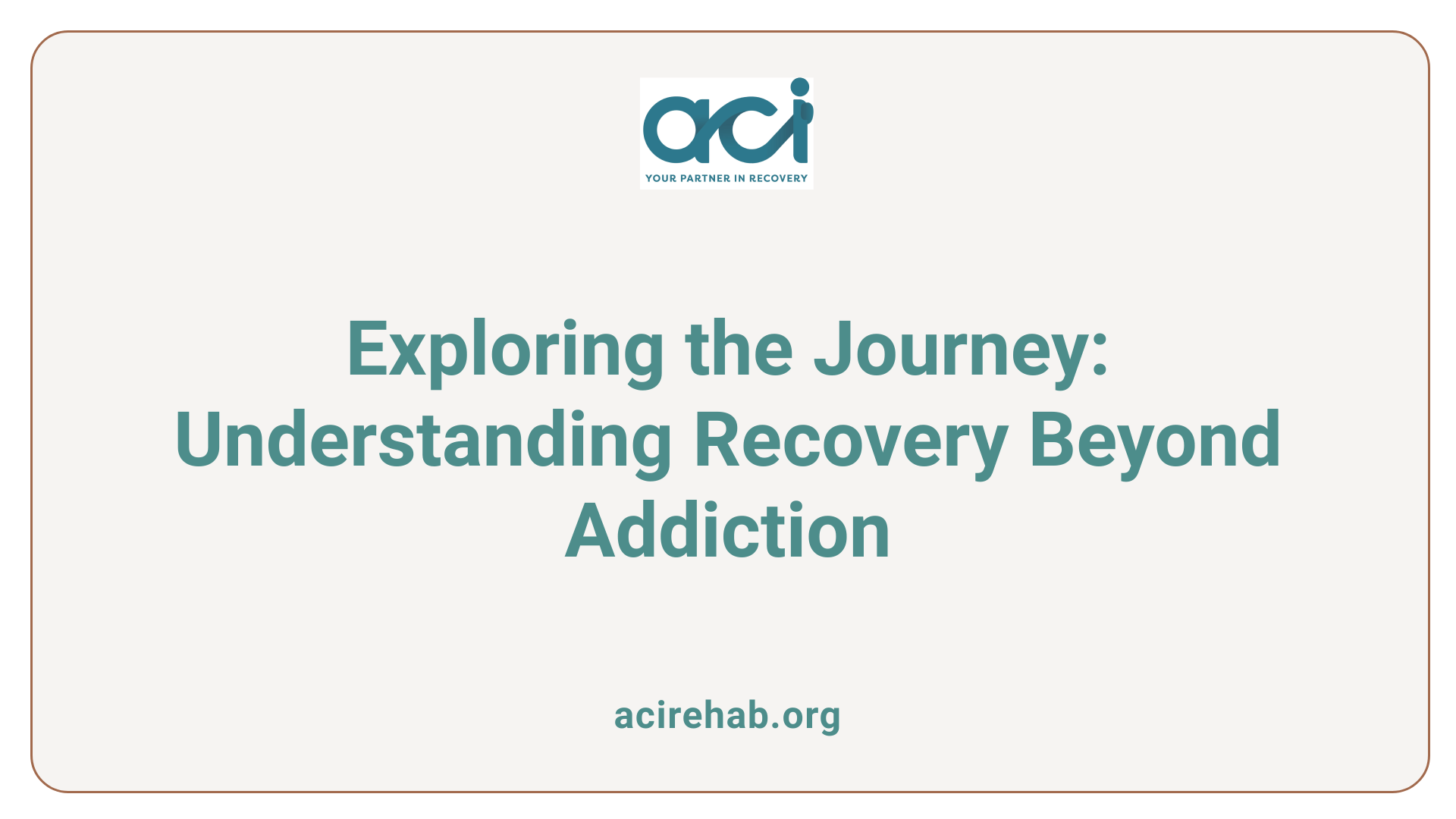
What is a person in recovery?
A person in recovery actively engages in overcoming substance use disorders while striving to achieve improved health and wellness. This journey involves making positive lifestyle changes and represents a voluntary commitment to self-directed living, seeking to reach one’s full potential. It’s essential to recognize that recovery is not about finding a cure for addiction but rather managing the condition and enhancing overall quality of life.
Recovery-oriented systems of care
Recovery-oriented systems of care emphasize long-term chronic care management and highlight the importance of support services and community involvement. These systems help individuals navigate their recovery journey by providing access to evidence-based treatments and therapeutic practices. This approach encompasses various support structures, including mutual aid groups and recovery housing, which play vital roles in sustaining long-term recovery.
Lifelong management of recovery
The recovery process acknowledges that relapse can occur, and thus emphasizes the dynamic and ongoing nature of recovery management. Individuals often face daily challenges and decisions that directly support their sobriety. As they progress, individuals learn to identify and address potential triggers while establishing healthy habits and routines to ensure continued growth.
The path of recovery encourages individuals to focus on their strengths, engage in self-reflection, and cultivate healthy relationships that foster accountability and connection. This multifaceted approach contributes to a holistic and empowered self-view, allowing for a complete transformation that transcends past identity limitations.
Redefining Identity in Recovery
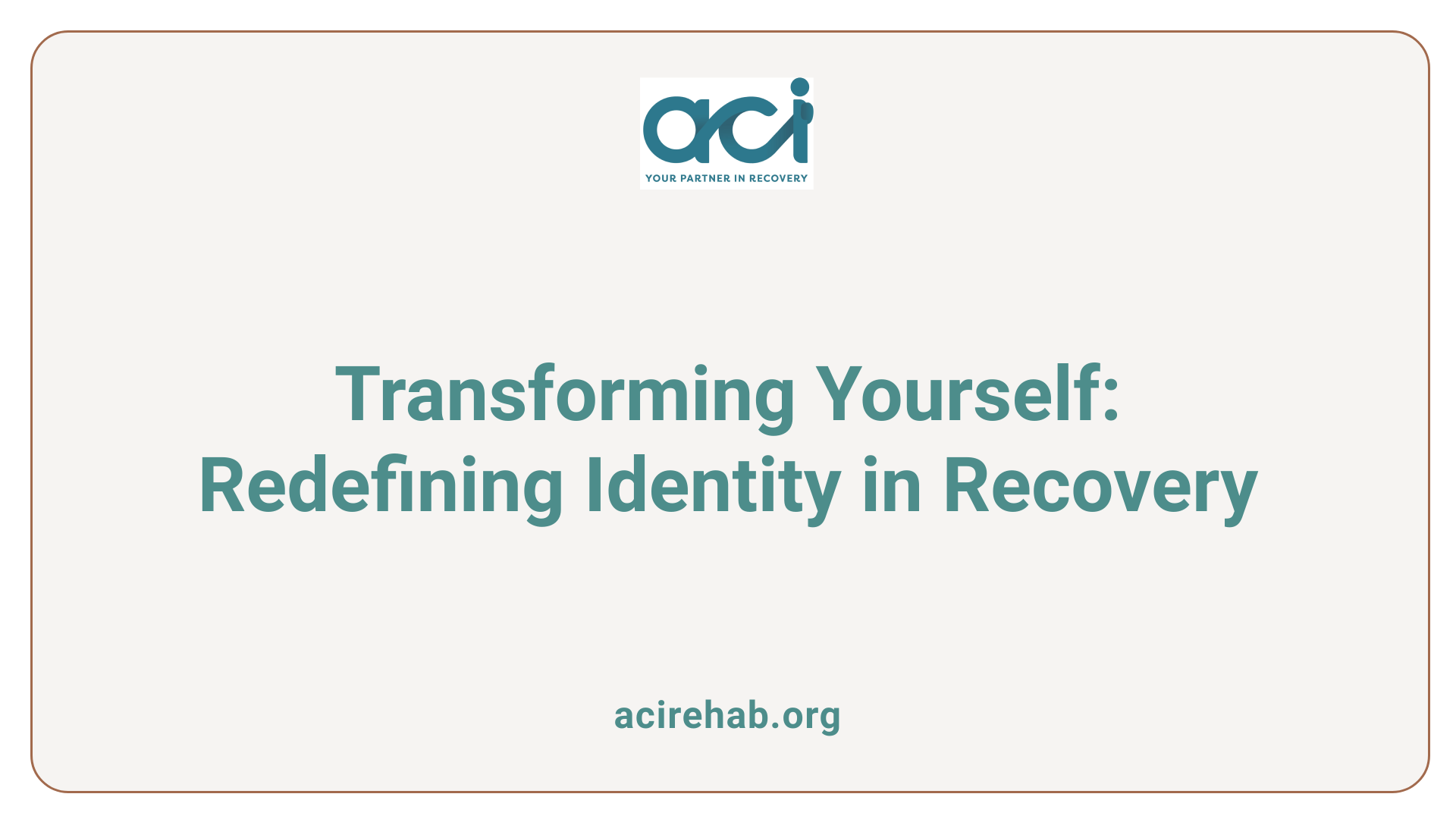
How can identity be redefined in recovery?
Redefining identity during recovery is a profound journey that involves separating substance use habits from personal attributes. This distinction allows individuals to detach their past behaviors from their true character. It’s important to recognize that addiction is not a defining trait; rather, it’s a challenge that affects one’s life but does not encapsulate it.
Cognitive reframing plays a vital role in this process. By changing the narrative around past experiences, individuals can transform how they perceive their journey. This shift often leads to fostering new relationships and environments that emphasize sobriety. Embracing curiosity instead of fear encourages individuals to explore the uncertainties of life post-addiction, transforming challenges into paths for self-discovery.
In this journey, grieving and accepting past identities associated with addiction is crucial. It involves acknowledging the loss of former selves that may have been entwined with substance use. By focusing on passions and recognizing positive traits, individuals can construct a new identity centered on growth and hope. Overall, this process not only supports holistic healing but also emphasizes the importance of continual personal development.
Navigating Recovery Identity
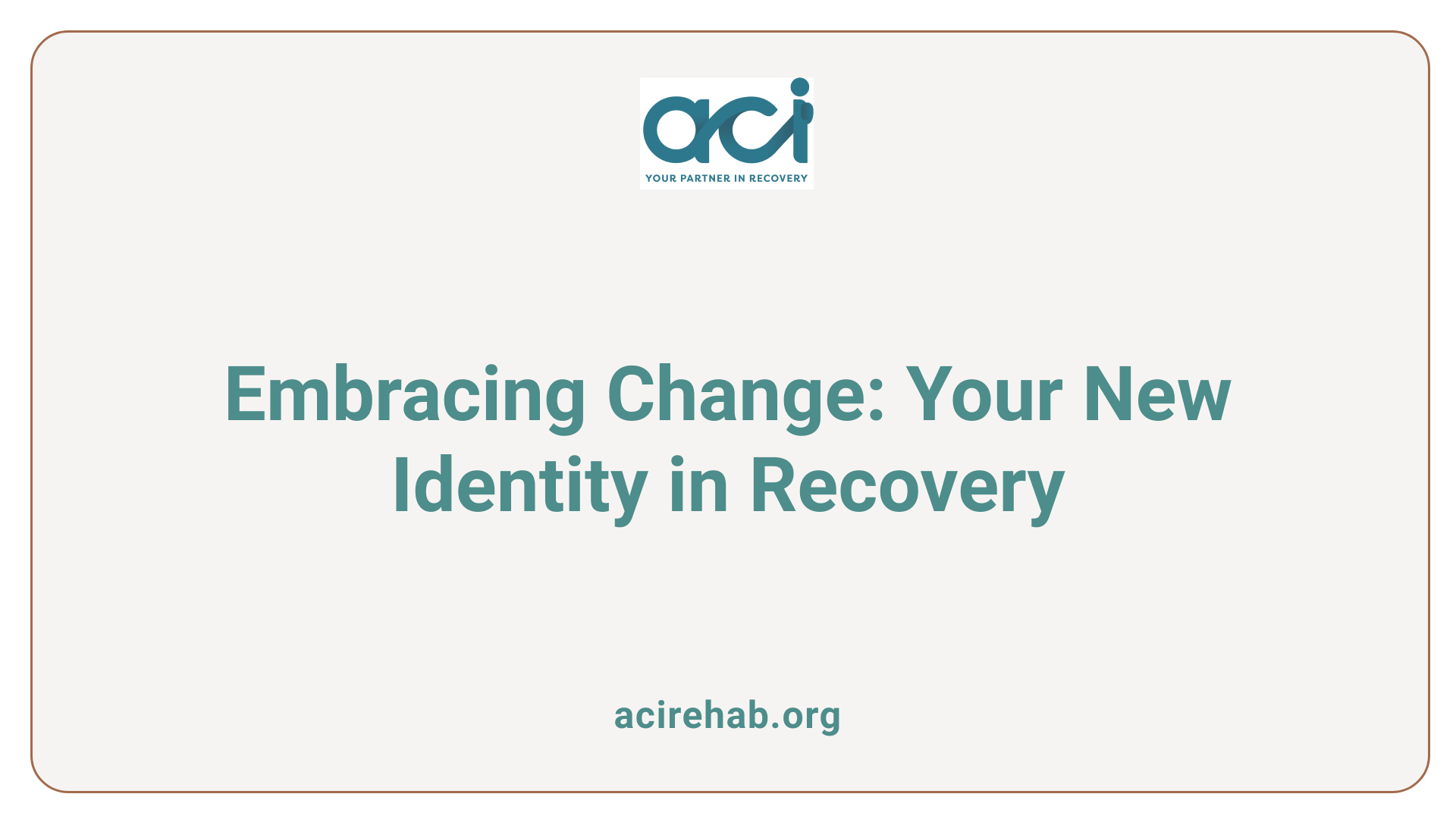
What is a recovery identity?
A recovery identity refers to a transformative shift in how individuals perceive themselves, moving away from being defined by their substance use to embracing an identity centered around recovery. This concept is crucial for successful recovery outcomes, as it often occurs through engagement with supportive social networks that foster positive identity changes.
Social connections play a significant role in promoting abstinence and can help mitigate the stigma associated with addiction, which frequently hinders recovery efforts. Individuals may find themselves on a dynamic journey regarding their social identity, where the motivation to regain a positive self-image is critical to their recovery process.
Transformative self-perception
The transformative aspect of recovery identity encourages individuals to redefine their self-perception. Rather than labeling themselves with negative terms like "junkie" or "drunk," they are invited to see their substance use as merely one chapter in a larger narrative of personal growth. Acknowledging that past addiction does not define them allows for a more empowering self-identity to emerge, where personal values, dreams, and connections become central to their sense of self.
Social networks in recovery
Engaging in social networks offers significant emotional support and reinforcement of positive behaviors. The bonds formed through shared experiences foster a sense of belonging, which can mitigate feelings of shame often linked to addiction stigma. By surrounding themselves with supportive peers, individuals can celebrate milestones in recovery, further enhancing their budding recovery identity.
Mitigating addiction stigma
Addressing the stigma associated with addiction is essential in recovery. Individuals often face societal judgment that fosters feelings of shame, resulting in a tarnished self-image. A committed recovery identity, combined with a strong support network, can help counteract these negative perceptions, allowing individuals to feel hopeful and encouraged as they work towards establishing a healthier, fulfilling life beyond addiction.
Supportive Communication in Recovery
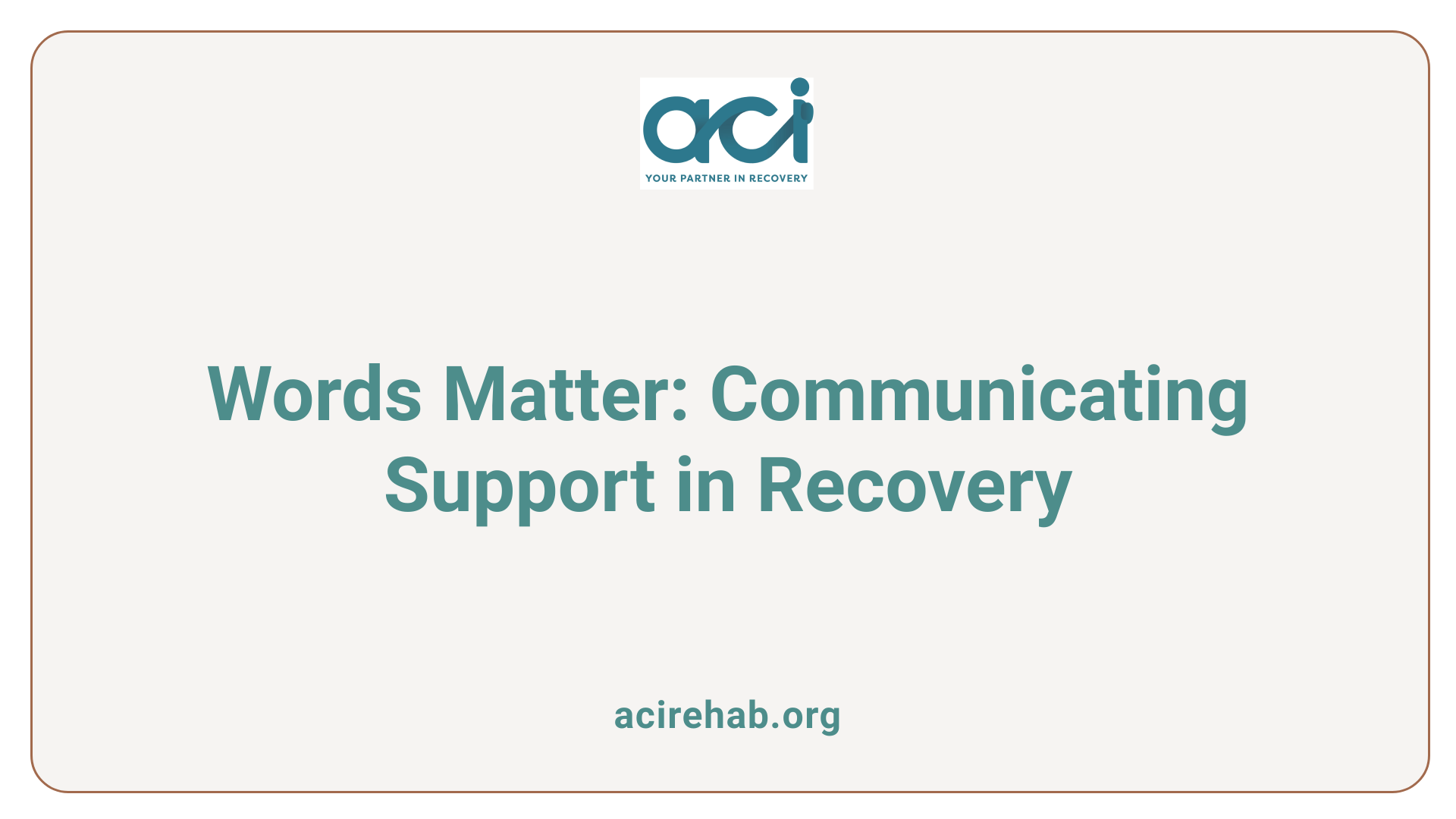
What do you say to someone who is in recovery?
When supporting someone in recovery, it’s crucial to express unconditional love. Simple phrases like "I love you" can make a significant impact, helping them feel worthy despite their past. Reminding them that "you’re not alone" fosters a sense of community, as many others face similar struggles.
Engage them by asking, "How are you feeling?" This opens avenues for discussing their emotions, which is vital for their mental health. Offer your support by saying, "How can I help?" This respects their needs and autonomy during recovery. Lastly, acknowledging their efforts with a heartfelt "I’m proud of you" reinforces their progress and encourages continued growth.
Building community and promoting open dialogue
Creating an open dialogue around recovery strengthens bonds and encourages shared experiences. Building community through supportive conversations mitigates feelings of isolation often experienced in recovery. It’s essential to prioritize this interaction, ensuring that those recovering from addiction feel secure in expressing their thoughts and feelings, further nurturing their healing journey.
The Impact of Addiction on Self-Identity
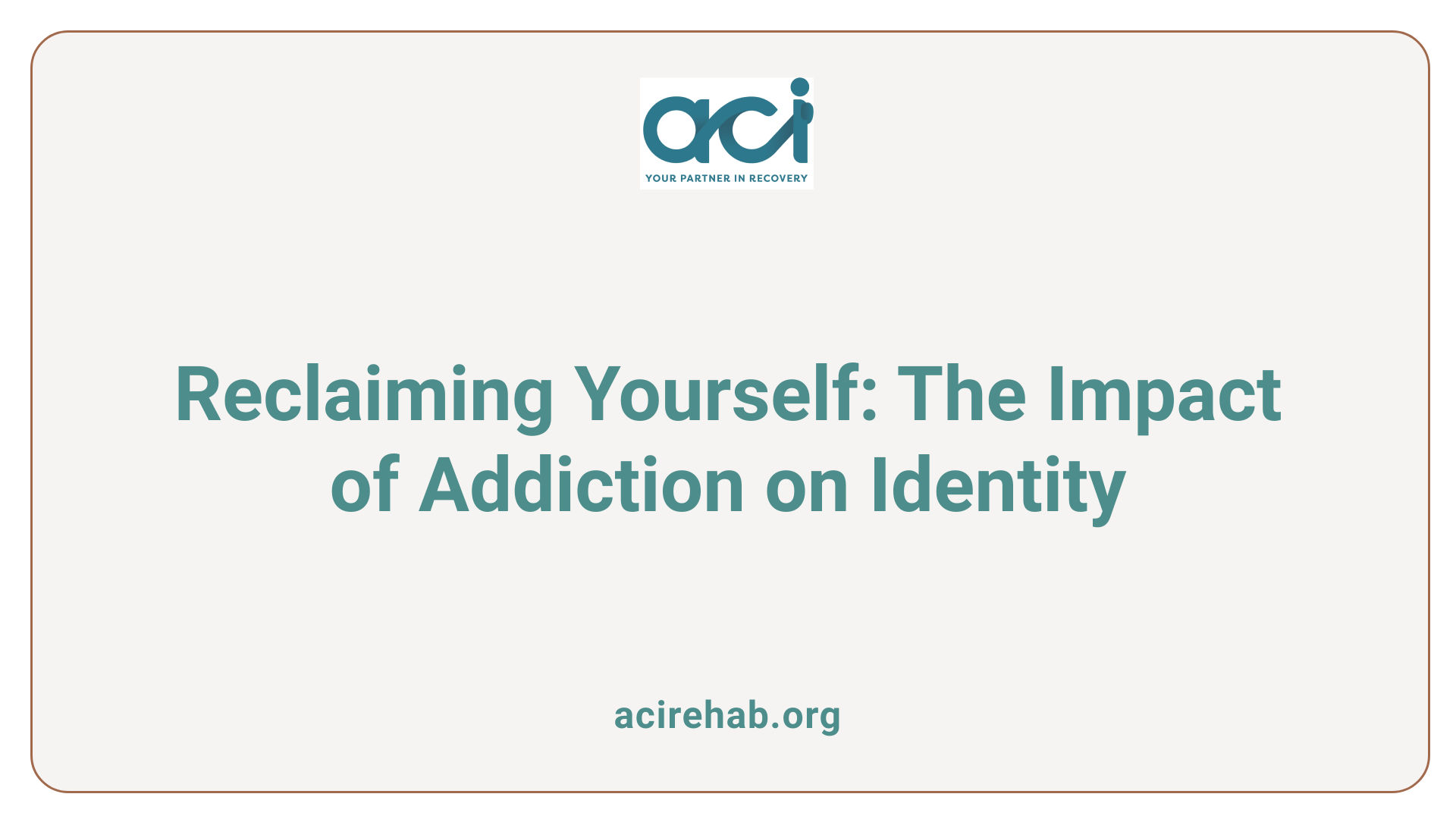
How can addiction impact self-identity?
Addiction profoundly influences self-identity, leading to significant changes in how individuals perceive themselves. In many cases, substance use fosters a disconnect from one’s natural reactions and core values, effectively masking true personality traits. This alteration can lead people to develop a reductive self-view, often identifying solely as "addicts."
The consequences of prolonged substance use can be severe, stripping away integral roles that define an individual—such as career accomplishments or familial duties. This loss may shape a perception of oneself that is devoid of previous interests or aspirations.
Rediscovering core values
Recovery sets the stage for reestablishing a sense of self that extends beyond addiction. Individuals are encouraged to reflect on and integrate their past experiences into their evolving identity, highlighting aspects such as age, gender, and spirituality. This introspection is crucial for developing a healthy self-view, which fosters emotional regulation and the cultivation of positive coping strategies.
Integrating past experiences into recovery
The journey through recovery is not just about abstaining from substances but involves embracing new roles and redefining who one is. Adopting self-compassion during this reflective process aids in reconnecting with core values and understanding personal strengths. By cultivating a holistic identity that acknowledges past struggles while also celebrating personal growth, individuals can move from a flawed self-perception to one that is empowered and multifaceted.
Championing Authenticity in Recovery
Embracing Authentic Self
In recovery, individuals often embark on a journey of self-discovery, striving to reclaim their authentic selves beyond the confines of their addiction. By externalizing their substance use, they come to recognize that these labels do not define their identity. Instead, they begin to explore who they are outside the context of addiction, focusing on personal values, relationships, and passions that contribute to their holistic self-view.
Shifting Lifestyle Focus
A significant shift occurs in how individuals approach their lifestyle once they enter recovery. Instead of revolving around substance use, life focuses on personal growth, healthier behaviors, and positive coping strategies. People often engage in hobbies, nurture relationships, and establish new routines that reinforce a sense of self-worth and fulfillment in sobriety. This transformation not only highlights resilience but also demonstrates a commitment to living authentically.
Developing Self-Awareness
Self-awareness is crucial during recovery, guiding individuals to understand their feelings, needs, and potential triggers. Engaging in reflective practices like journaling can uncover insights into personal values and emotions. By fostering this awareness, individuals can nurture a sense of empowerment, navigating their recovery journey with patience and kindness towards themselves.
How do you describe someone in recovery?
To describe someone in recovery, it’s important to convey that they are no longer using alcohol or other drugs and are actively engaged in a transformative process. Terms like “in long-term recovery” highlight not only the cessation of substance use but also the stability and duration of their recovery journey. Sharing personal recovery stories can help illustrate the positive changes and achievements in their life, emphasizing hope and resilience rather than labels such as ‘addict’ or ‘alcoholic’. Effective communication should focus on the strengths gained from recovery and how it enhances their overall well-being. Ultimately, prioritizing clarity and positivity in discussions about recovery can foster understanding and support from both the recovery community and the public.
Using Personal Narratives and Journals
How can personal narratives and journals aid recovery?
Personal narratives and journals can significantly aid recovery by providing individuals with a safe space to process and express their emotions. Engaging in structured journaling encourages deeper emotional exploration through prompts that challenge individuals to confront difficult feelings, enhancing self-awareness and emotional regulation.
Utilizing the JournalSpeak method, which promotes somatic expression of emotions, supports a more profound healing experience. By documenting feelings, individuals cultivate self-compassion and develop insights into their patterns and triggers, fostering personal growth. Overall, journaling serves as a catalyst for self-discovery, emotional healing, and improved mental health, making it a valuable tool during recovery.
Emotional exploration
Recovery can often feel like peeling back layers of an onion, where each layer represents a unique experience or trauma. Journaling allows individuals to explore these deeper emotions, helping them reconnect with lost aspects of their identity post-addiction. Recognizing these feelings is essential for building a healthier self-image.
Journaling benefits
Journaling offers numerous benefits, including:
- Emotional processing: Provides an outlet for difficult emotions.
- Self-reflection: Helps individuals understand their journey and recognize personal growth.
- Stress reduction: Engaging in writing can alleviate anxiety and promote a sense of calm.
Prompts for self-reflection
Prompts are a great way to guide individuals in their journaling practice. Here are a few to consider:
- What does unconditional love look like for you?
- What are you grateful for in your own life?
- How has your perception of yourself changed since beginning your recovery?
These prompts facilitate introspection and can enhance the understanding of one’s evolution throughout the recovery journey.
Conclusion
Recovery is much more than abstaining from substance use; it is a comprehensive journey towards discovering and embracing one’s authentic self. By redefining identity, fostering supportive relationships, and employing tools like personal narratives and journaling, individuals can embark on a path of meaningful transformation. This journey involves acknowledging past struggles, embracing new roles, and fostering a recovery identity that enriches both personal self-esteem and community engagement. "Who Are You in Recovery" emphasizes the power of self-discovery, offering hope and encouragement to those stepping onto the path of recovery, and those who support them.
References
- Who am I? Identity in addiction and recovery – Counselling Online
- Who Are You in Recovery
- Finding Your Identity After Addiction – DreamLife Recovery
- 5 Tips for Telling People You’re in Recovery
- Changing Self Perceptions During Addiction Recovery
- The Role of Identity in Addiction Recovery
- What Does It Mean to Be in Recovery? | 7 Summit Pathways
- You Are In Recovery If You Say You Are – CCAR
- How do I find myself again in recovery? – MHA Screening
- The Importance of ‘Discovering Your Why’ in Recovery

